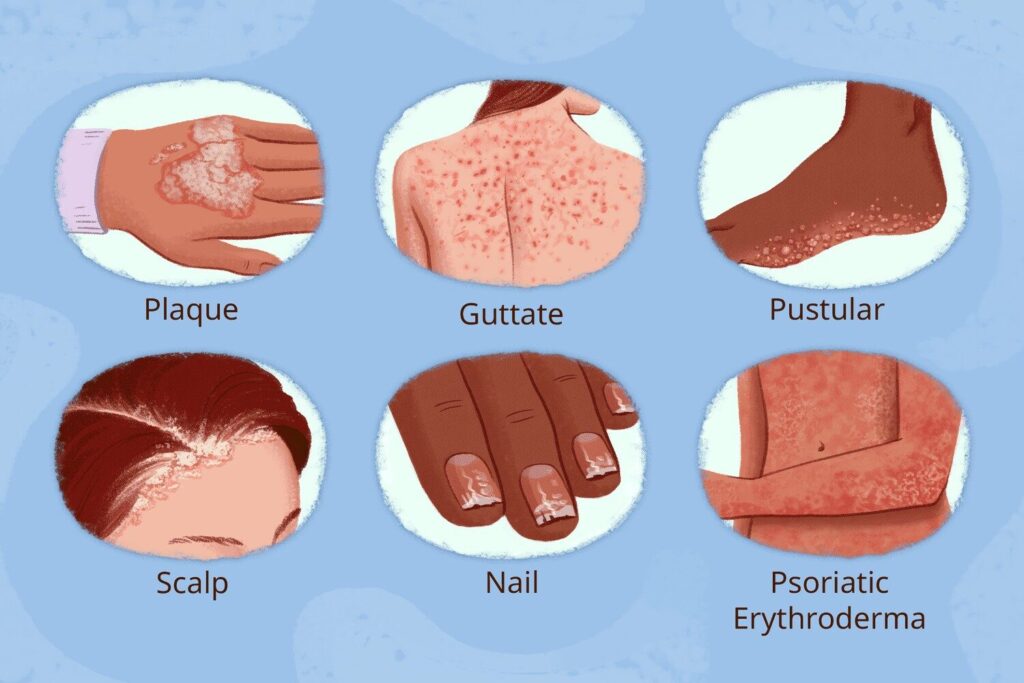Psoriasis
PSORIASIS

What is Psoriasis?
Psoriasis is an autoimmune disease where the body’s immune system attacks its own cells. This leads to an overproduction of skin cells, resulting in patches of abnormal skin that are typically red, itchy, and scaly. While it primarily affects the skin, it can also manifest on the nails, scalp, joints, and other body parts. The condition can worsen in the winter, which is why it’s sometimes called a “winter disease.”
Causes of Psoriasis
- Autoimmunity: The immune system malfunctions, causing skin cells to multiply too quickly.
- Genetic Factors: A major cause, as the risk of developing psoriasis is higher if one or both parents have it.
- Medications: Long-term use of certain medicines can increase the risk.
- Trauma: Injuries to the body can trigger psoriasis in the affected areas.
- Stress: Chronic emotional stress can make a person more susceptible to the condition.
Types of Psoriasis
- Plaque Psoriasis: The most common form, characterized by whitish plaques on the scalp, knees, elbows, back, hands, and feet.
- Guttate Psoriasis: Presents as small, drop-shaped lesions, often on the back and abdomen.
- Inverse Psoriasis: Occurs in skin folds (armpits, groin, under breasts) and causes bright red, shiny, and inflamed skin.
- Pustular Psoriasis: Causes white, pus-filled blisters on red, inflamed skin, typically on the hands or feet.
- Erythrodermic Psoriasis: A rare and severe type where the skin appears sunburned and covers a large portion of the body.
- Psoriatic Arthritis: A condition where a person has both psoriasis and arthritis, leading to joint pain, stiffness, and swelling.
- Nail Psoriasis: Resembles a fungal infection with signs like crumbling nails, tiny dents, and blood under the nail.
- Scalp Psoriasis: Causes patches on the scalp and can spread to the forehead and neck.
- Oral Psoriasis: Affects the inside of the mouth.
- Eruptive Psoriasis: Causes tear-shaped patches on the skin, often triggered by a bacterial infection in childhood or young adulthood.
Treatment for Psoriasis
The provided text suggests that herbal treatment is a highly effective approach for psoriasis. This type of treatment is said to work at the level of the immune system to restore its function without the side effects of conventional medicines. It is described as a holistic approach that targets the root cause of the disease, leading to long-lasting relief. The text highlights that at Rajavarma Siddha Hospital, experts use traditional herbal medicines to provide sustainable results for patients.
Useful Tips for Psoriasis
- Avoid scratching the affected areas.
- Manage stress and emotional issues.
- Maintain a healthy diet.
- Take warm baths.
- Identify and avoid triggers that worsen the condition.
- Quit smoking and limit alcohol consumption.


